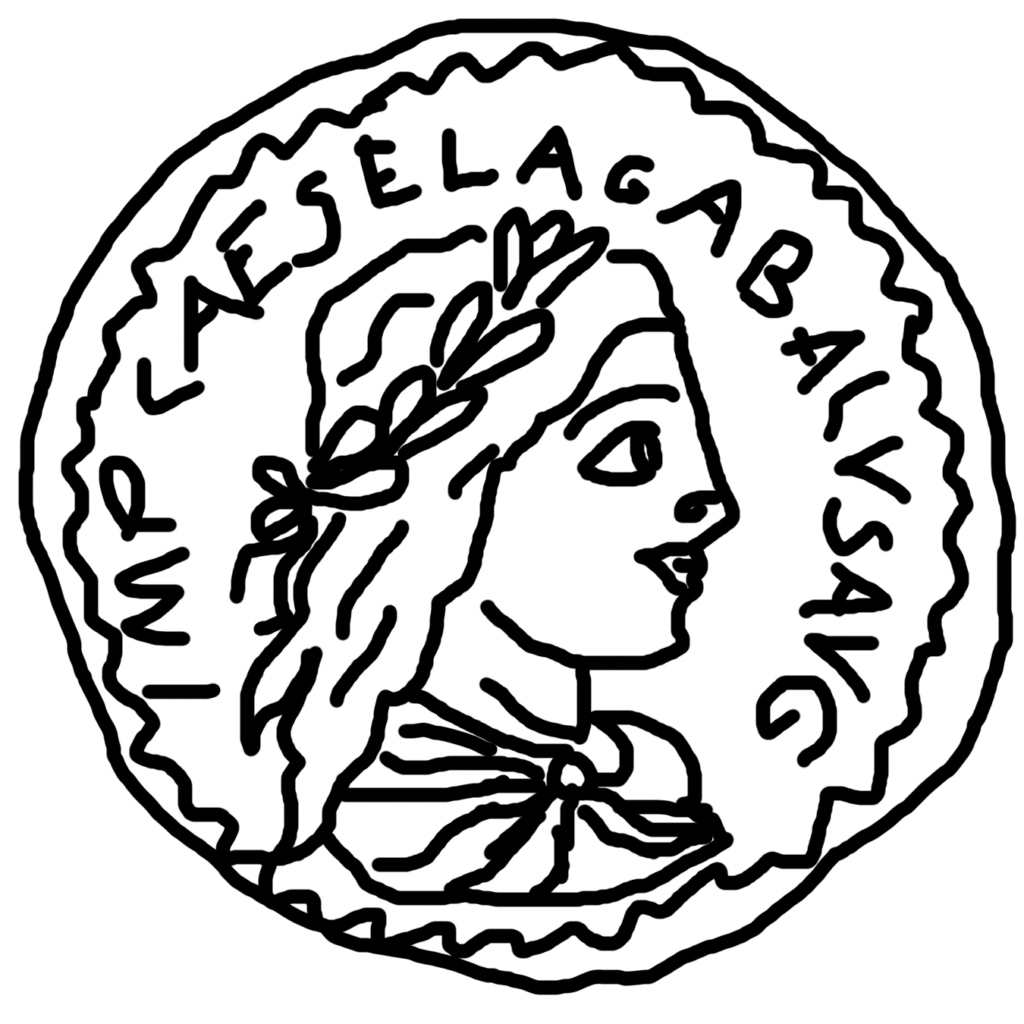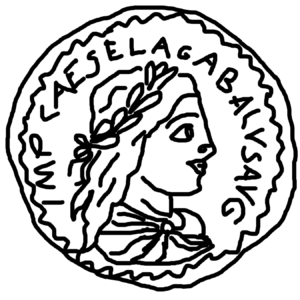
Heliogabalus
Heliogabalus
She stands before the black stone, the sun god, Illah ha-Gabal. The music starts. Pipes and drums and cymbals. She dances, spinning clockwise, kicking up her heels and leaping into the air. At the altar, the priest takes a fresh-sharpened dagger and opens the bull’s throat. The sun beats down. She dances, and she can feel her god smile.
She is the son of the last true emperor. Her mother tells her this every night, to remind her of her birthright; her grandmother tells it to everyone who will listen. They meet in secret with generals and governors. She is still only a boy, and is not welcome. She does not learn that she will be named emperor until the night before. In the morning, sunrise at her back, she faces her legions, and they hail her name.
Her armies meet the pretender’s at a village some twenty miles from Antioch. The enemy gains the upper hand; but her mother and grandmother rally the troops, and the pretender is defeated. He flees to Chalcedon, and thence to Cappadocia; his son is sent to ask the Parthians for aid. Both are captured on the road and executed. She rides into the city as emperor, and none dare to oppose her.
She does not arrive in Rome until the first year of her reign is almost over. Her chariot is drawn by twelve white horses. Behind and above her sits the black stone, the sun god, Illah ha-Gabal. She dresses not as an emperor, in purple toga and laurel wreath, but as high priest, her first and most important office, red robes and a peaked cap, bedecked in gold and jewels. It does not please the senators, nor the people, but it pleases her god, and it pleases her.
She has three wives. She loves none of them. She has a husband, too, though few recognize their union. She loves him with all her heart. In the palace, when they are safe from prying eyes, she wears dresses, and paints her face, and he calls her wife, mistress, queen. She has other lovers, noblemen and gladiators, soldiers and slaves, but she always comes back to her king.
On the Palatine, she has a temple built, higher than the temple of Jupiter Optimus Maximus. At its center is the black stone, the sun god, Illah ha-Gabal, and on holy days she dances around it as she did back in Syria. She has the other gods’ relics brought there, Vesta’s flame, Cybele’s stone, Minerva’s idol, so that none can be worshipped without also worshipping the gods’ new king. At the solstice, when her god is strongest, she leads him through the streets, walking before his chariot and singing hymns of exultation.
She sends messengers to each corner of her empire, searching for a physician who can make her into a woman in truth. Some respond, and she has them demonstrate their technique on slaves; but they are butchers all, and the slaves that survive have nothing between their legs but scars and regret. One night, out of her mind after the latest failure, she almost does it herself with a dagger. Her king catches her before she makes the cut, and holds her until dawn.
Her grandmother is plotting against her. She is forced to adopt her cousin and name him heir. He shares the consulship with her. She grows to hate him. The senate will not let her retract his adoption, so she turns to assassins. None of them return; perhaps they failed, perhaps they took her money and ran. She tells whoever will listen that he is near death; her soldiers almost riot, and they call for her cousin to be brought to them.
She brings out her cousin, and her mother. It is the last mistake she will ever make. The soldiers ignore her, and shout his name. She calls for the traitors to be executed, and they cheer louder. Some draw their swords, and approach. She turns to flee. A soldier grabs her by the hair, another holds a sword to her throat; before her beheading, she looks up, and sees her grandmother’s smile. It is not a kind smile.
Her head falls to the ground. In her final moments of consciousness, before the blood drains out and her brain dies, she prays. She prays that her king will escape Rome. She prays that her mother will have a quick death. She prays that her name will be remembered. She opens her eyes one last time, and all she can see is light: the light of the black stone, the sun god, Illah ha-Gabal.

Fascinating, and beautifully written. I just listened to three podcasts of the Emperors of Rome series. They call him Elagabalus, which I guess is the same thing. These start with numbers CXXIII, recorded on June 24, 2019. Thank you.